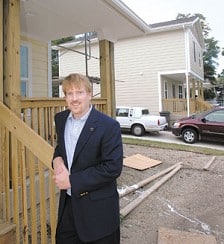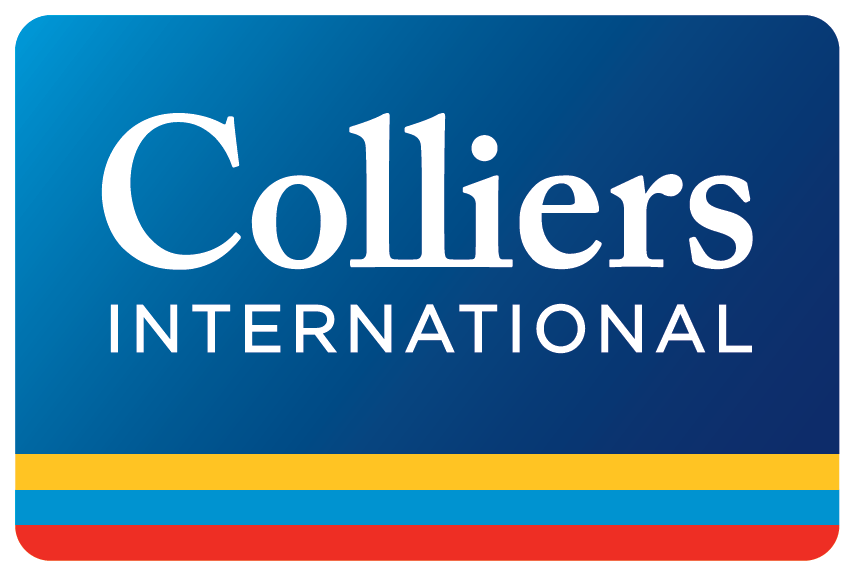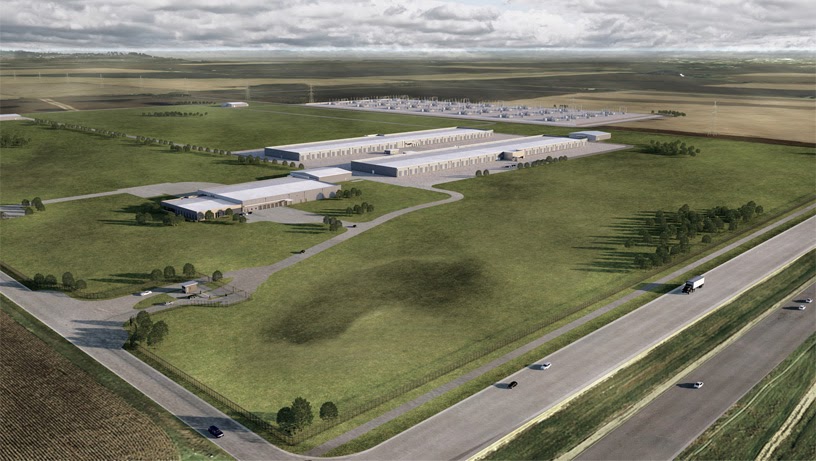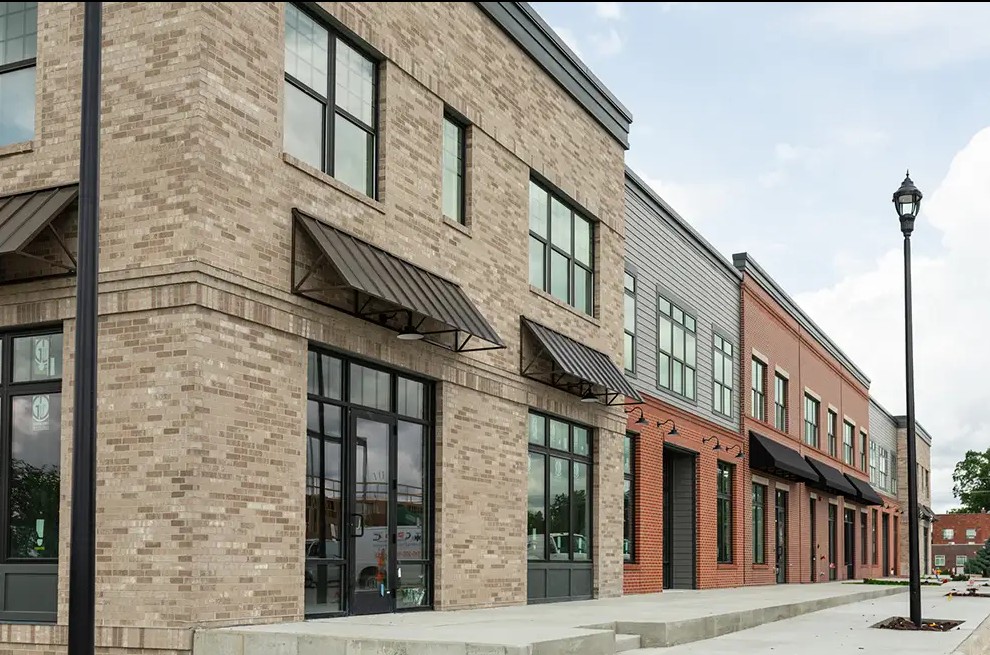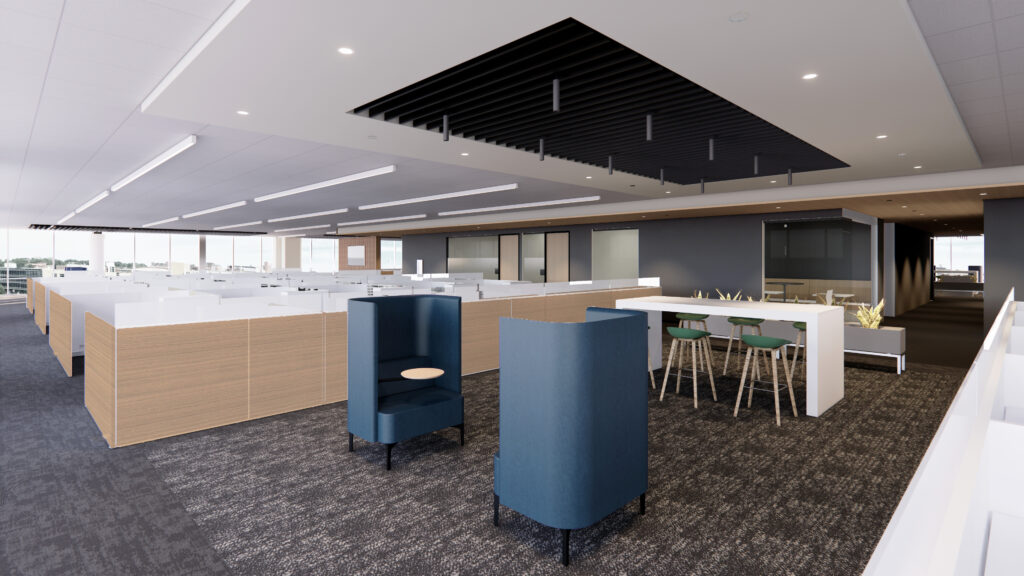Habitat for Humanity builds hands-on homes

Sorry, Dyersville, but your city isn’t the only Iowa community with a “Field of Dreams.”
For 10 families that once could only dream about owning their own homes, an abandoned ballfield on Des Moines’ southeast side will soon become their new neighborhood.
Beginning Sept. 13, about 300 Greater Des Moines Habitat for Humanity volunteers per day will converge on the site to raise the walls for 10 new homes on the now-empty block. Just 20 days later, if construction proceeds on schedule, Habitat officials will hand the keys to the houses to each of the families.
The $1 million project, called Habitat 20/10, is the largest “blitz-building” event yet for Greater Des Moines Habitat, said Lance Henning, the nonprofit organization’s executive director.
“The purpose behind doing a blitz build is that it engages the volunteers and the sponsors and gets them excited about Habitat,” he said. “It’s exciting for the community, and hopefully it’s an awareness-raiser both for Habitat for Humanity and for affordable housing.”
Last year, Greater Des Moines Habitat completed 18 new homes and four major rehabilitations of older homes, a level that Henning expects his organization will repeat this year. That level of activity ranks the organization among the 100 largest Habitat affiliates in the northern half of the country.
“We have actually been fortunate over the last couple of years as the economy turned that the business community has been our single largest (contributor),” Henning said “So the corporate side has provided both funds and volunteers that have allowed us to build the houses.”
Sweat equity
The self-help housing program works with low-income families that earn less than 50 percent of the area’s median family income. In Des Moines, that equates to an income of less than $36,600 for a family of four, though Habitat frequently works with families whose incomes are as low as $25,000. Each adult participant must contribute a minimum of 400 hours of “sweat equity” working on Habitat houses, half of which must be completed before the participant becomes eligible to choose a house. Participants are also required to complete Habitat’s “Blueprint to Homeownership” course, which includes 30 hours of classroom time and six hours of one-on-one counseling.
Each house is financed by Habitat through a 20-year zero-interest mortgage, which is another key element of affordability, Henning said. “The families are making payments back to Habitat, and we’re able to recycle that to the next families down the road.”
Though Habitat affiliates nationwide have an average foreclosure rate of 3 to 4 percent, the Greater Des Moines affiliate has never had a mortgage foreclosure, Henning said. The organization has put 107 Des Moines families into houses since 2002.
Demand for the program is high, as is the need. During the most recent semiannual application meeting, 170 families attended to submit their applications. Those applicants were among an estimated 16,000 renters in Polk County who were paying more than 35 percent of their incomes in rent in 2008, a 20 percent increase from 2000.
In addition to constructing new houses, Habitat works with families in existing homes in the neighborhoods in which it has built houses.
Through a program called Rock the Block, a housing outreach coordinator on Habitat’s staff connected nearly 350 people in those neighborhoods to services in the past year. Among the programs to which it makes referrals are the city’s minor repairs program, Neighborhood Finance Corp. and the Rebuilding Together program. Habitat also provided minor repairs and external enhancements to 42 existing homeowners in those neighborhoods during the past year.
On Sept. 23, Rebuilding Together will conduct a one-day event in the neighborhood adjacent to Habitat’s 20/10 blitz build site,
“We’re partnering with Habitat to see what else we can do to rehabilitate the existing homes in that area,” said Kimberly Hansen, executive director of Rebuilding Together Des Moines. The organization, one of 200 independent affiliates of the national nonprofit, is celebrating its 15th year of operation. Rebuilding Together volunteers will address safety issues such as repairing sidewalks and windows and building wheelchair ramps for about seven houses and weatherize more than 15 homes, she said.
Additionally, Rebuilding Together has just begun its second year partnering with Habitat and 21 other agencies in a neighborhood revitalization effort focusing on the King-Irving and Mondamin neighborhoods, Hansen said.
“Bringing more than one nonprofit together for a project helps leverage the funding that each one has,” she said. “When a donor finds out it’s more than just building new homes but also improving the neighborhood around it, they’re likely to give more.”
One-time funds
Though corporate contributions to Habitat have declined in the past year due to the recession, a combination of one-time federal, state and city funds have helped make up the difference, Henning said. Habitat has been a major partner with the city of Des Moines in using federal Neighborhood Stabilization Program (NSP) funds to acquire foreclosed properties. In the past 15 months, 22 of 24 foreclosed properties that Habitat purchased were acquired using NSP money. “We are rehabbing some of those, and others we are tearing down because they are too far gone to fix up, and we are putting new homes in their place,” Henning said.
“That program, and additional funding sources such as I-JOBS, have allowed us to stay where we’re at in terms of our building effort,” he said. In August 2009, Greater Des Moines Habitat received a $697,000 I-JOBS grant from the state. “We understand that these are one-time funds, and we’re doing our work to continue growing as hopefully the economy turns around,” he said.
Another positive for its budget has been the Habitat ReStore, a construction materials outlet the group opened at its Second Avenue headquarters in 2003. The ReStore, which accepts donations of lightly used or new building materials and resells them to the public, now accounts for 20 percent of the organization’s revenues.
Beyond funding, volunteer leadership is Habitat’s greatest need, both for the upcoming 20/10 project and overall, Henning said. “We need people who are either willing to lead a house or small crews of volunteers,” he said. “They don’t necessarily have to work in the construction trades; we have folks who help provide leadership on our sites who are handy and have done projects for themselves or others and they have the ability to lead volunteers.”
Tim Meline, a sales trainer and director of brokerage development with Iowa Realty Inc., has served as a Habitat project coordinator for each of the five houses the Des Moines Area Association of Realtors (DMAAR) has built in the past 10 years. He will also lead the DMAAR team during the 20/10 event; the association is sponsoring one of the 10 houses.
“It does bring the Realtors together for these builds, because we’re not different companies at that time; we’re all one team,” said Meline, whose last project was a house on Dubuque Avenue for a young man who had been disabled in an automobile accident. “It gives me a chance to mix with all the Realtors in the community, working towards a common goal.”
In addition to rolling up their sleeves at the construction site, the Realtors have set a goal of raising $80,000 for their house, a target which Meline said they are nearing.
“What a better way for Realtors to give back to the community?” he said. “It’s a perfect match.”

